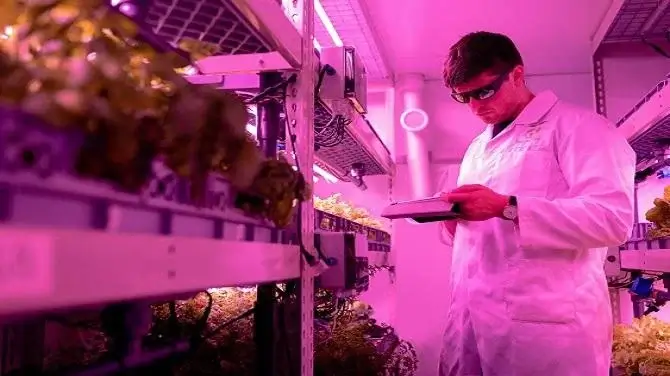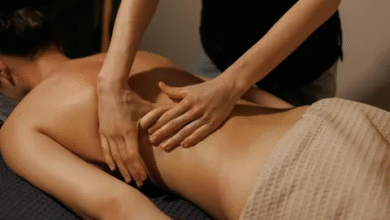Free Sugar Pro Canada – 5 Ways Natural Supplement Supports Blood Sugar & Energy
Free Sugar Pro Canada – 5 Ways Natural Supplement Supports Blood Sugar & Energy

Maintaining healthy blood sugar levels is one of the most important parts of overall health. For many adults in Canada, fluctuating glucose levels, constant cravings, low energy, and slow metabolism make daily life more difficult. These problems not only affect physical health but also impact focus, mood, and productivity. With busy lifestyles and high stress, it is not always easy to follow strict diets or complicated routines to stay balanced. This is where Free Sugar Pro Canada offers a natural and supportive solution.
Free Sugar Pro is designed as a gentle, effective, and easy-to-use supplement that helps manage blood sugar naturally. Unlike heavy medications or difficult programs, this supplement is simple to include in everyday life. It helps promote steady glucose levels, better energy, and improved metabolism so adults can stay active, focused, and productive.
What is Free Sugar Pro Canada?

Free Sugar Pro Canada is a natural liquid supplement made for adults who want to support healthy blood sugar levels and energy without depending on complicated diets or harsh treatments. It is created using plant-based extracts and nutrients that work with the body to promote smoother glucose control and better metabolism.
One of the unique things about Free Sugar Pro is its liquid form, which makes it easier to take and absorb compared to pills or capsules. You can simply add it to water or another drink, making it a simple part of your daily routine.
This supplement is especially made for people in Canada who often deal with:
- Unstable glucose levels
- Low daily energy or mid-day crashes
- Constant sugar cravings
- Fatigue and lack of focus
- Slow metabolism
By helping the body manage glucose more efficiently, Free Sugar Pro allows you to feel more balanced throughout the day. It is not a quick fix, but rather a steady support system for long-term health and energy balance.
How Does Free Sugar Pro Canada Work?
Free Sugar Pro Canada works by addressing the natural processes in the body that control glucose, energy, and metabolism. Here’s how it supports health:
- Supports Balanced Blood Sugar
The ingredients in Free Sugar Pro help the body regulate how glucose is absorbed and used. This reduces sudden spikes and crashes, leading to steadier sugar levels throughout the day. - Improves Energy and Focus
Many people with unstable blood sugar feel tired, unfocused, or experience afternoon crashes. By balancing glucose, Free Sugar Pro provides a more consistent energy flow that helps you stay alert and productive. - Boosts Metabolism
A slow metabolism can lead to weight gain, cravings, and low stamina. The natural extracts in Free Sugar Pro support metabolic health, helping the body use glucose more effectively for energy instead of storing it as fat. - Reduces Cravings
When blood sugar is stable, unnecessary hunger and cravings naturally reduce. This makes it easier to maintain healthy eating habits without feeling restricted. - Promotes Long-Term Wellness
Over time, steady glucose levels support heart health, brain function, and overall performance. Free Sugar Pro is designed to help adults feel more balanced and healthier in their everyday life.
Reviews of Free Sugar Pro Canada
Review 1 – Sarah, 42, Toronto
“I started using Free Sugar Pro because my energy would always drop in the afternoon. I would feel sleepy at work and grab snacks just to stay awake. After a few weeks of using this supplement, I noticed my energy stayed steady, and I didn’t feel those sudden cravings anymore. It’s simple to take, and I feel more focused throughout the day.”
Review 2 – Michael, 51, Vancouver
“As someone who has been trying to manage my blood sugar for years, I was looking for something natural and easy. Free Sugar Pro has made a difference in how I feel. My mornings are less sluggish, and I don’t get that heavy crash after meals. It feels good to finally have a supplement that supports me without being complicated.”
Review 3 – Anita, 37, Calgary
“I was drawn to Free Sugar Pro because it is a liquid supplement. I don’t like swallowing pills, so this made it very convenient. Within a month, I felt less tired and noticed I had more stamina during my workouts. It’s not a miracle product, but it has definitely made my daily routine smoother and more balanced.”
Pricing of Free Sugar Pro Canada
The cost of Free Sugar Pro Canada may vary depending on where you purchase it. It is usually available online through the official website and selected health retailers. Most sellers provide different package options, such as:
- Single Bottle Pack – Good for beginners trying it for the first time.
- Three Bottle Pack – Offers a discount and is useful for consistent use.
- Six Bottle Pack – Provides the best value for long-term support.
Some promotions may also include free shipping or special discounts for Canadian customers. Since it is recommended to use Free Sugar Pro regularly for best results, most people prefer buying in bundles for better savings.
Ingredients in Free Sugar Pro Canada
Free Sugar Pro Canada is made with natural and plant-based ingredients that are carefully selected to support glucose balance, energy, and metabolism. While the exact formula may vary, common ingredients include:
- Chromium – Helps the body use insulin more effectively and supports healthy blood sugar levels.
- Cinnamon Extract – Known for its ability to improve glucose control and reduce cravings.
- Gymnema Sylvestre – A traditional herb that helps reduce sugar absorption and curbs sweet cravings.
- Banaba Leaf Extract – Supports metabolic health and stable glucose management.
- Alpha Lipoic Acid (ALA) – A powerful antioxidant that improves energy use and reduces oxidative stress.
- Bitter Melon Extract – Helps the body manage glucose naturally and supports digestion.
- Licorice Root – Calms digestion and promotes metabolic balance.
All ingredients are natural and selected to work together, providing safe and gentle support without harsh chemicals.
Benefits of Free Sugar Pro Canada
Using Free Sugar Pro Canada regularly can provide many health benefits, such as:
- Supports steady blood sugar levels throughout the day
- Helps reduce sudden energy crashes and fatigue
- Promotes better focus, productivity, and mental clarity
- Supports metabolism and natural energy use
- Reduces frequent cravings and overeating
- Provides antioxidant support for overall wellness
- Easy-to-use liquid formula for fast absorption
- Fits into daily life without requiring strict diets or big lifestyle changes
Frequently Asked Questions (FAQs)
1. Who can use Free Sugar Pro Canada?
Free Sugar Pro is made for adults who want to support healthy blood sugar, energy, and metabolism. It is not recommended for children, and those with medical conditions should consult a doctor first.
2. How do I take Free Sugar Pro?
It comes in liquid form and can be taken daily by mixing with water or another drink. Follow the recommended dosage on the label for best results.
3. How long does it take to see results?
Some people may notice improved energy and reduced cravings within a few weeks. However, for long-term benefits, consistent use over a few months is recommended.
4. Is Free Sugar Pro safe?
Yes, it is made from natural ingredients and is designed to be gentle on the body. It is manufactured under safe conditions, but it is always best to check with your healthcare provider before starting any new supplement.
5. Do I need to follow a special diet with Free Sugar Pro?
No, the supplement is designed to support your body naturally. While you don’t need a strict diet, pairing it with healthy eating and regular activity will provide better results.
Final Thoughts on Free Sugar Pro Canada
Free Sugar Pro Canada is a natural and practical supplement designed for adults who want to balance their blood sugar, boost energy, and support metabolism without complicated steps. Its liquid formula makes it easy to take, and the blend of natural ingredients provides steady support for daily health.
This supplement is not a quick fix but works as a long-term aid for better balance and overall wellness. For Canadians dealing with energy crashes, cravings, or unstable glucose levels, Free Sugar Pro offers a gentle yet effective solution. With regular use, it can help you feel more focused, active, and in control of your health.







